'This was the first ever visit by a President in a re-election year so it sent a strong signal of the priority of the relationship and the desire to continue to strengthen it.'
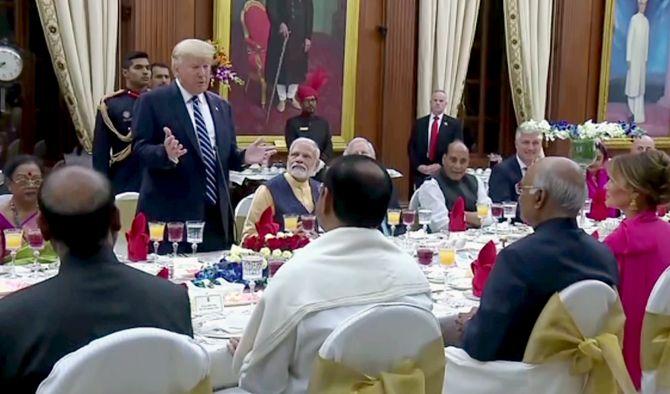
"This was an instance of the visit itself being a deliverable," Dr Anish Goel, senior fellow with New America and former White House official for South Asia, tells Rediff.com's Archana Masih.
While President Trump played glowing tribute to Prime Minister Modi and India, he also said the US relationship with Pakistan is very good and his government is working with Pakistan to crack down on terror groups.
In your opinion, how is America strategising its relationship with both these countries with traditional animosities?
Is the balance tipping towards India?
The United States is trying to build as strong a partnership as possible with both countries simultaneously.
Each bilateral relationship is important in its own right and that sentiment is being borne out by the desire to strengthen ties with both.
Thinking about the balance tipping to one or the other country is no longer applicable when it comes to how the United States approaches its relationships in the region.
There is benefit in both partnerships.
What about America's need for Pakistan more than ever since Trump is looking at a US draw down of troops before the November election?
American troops have already drawn down from over 130,000 in 2010 to only around 10,000 today.
During that time, the US-Pakistan relationship has seen both ups and downs.
The United States wants Pakistan to play a mature, stabilising, role in Afghanistan that supports its democracy and economic growth.
But that approach does not change based on how many troops are in the country.
If the United States withdraws all troops, it will continue to work with Pakistan, just as it does now.
India will buy helicopters worth $3 billion. President Trump said he wants the US as India's leading defence partner -- is this the biggest success of the Trump visit even though the deal was almost done even before Trump's arrival?
For a famously transactional President, isn't this meagre pickings from a State visit?
Presidential visits are always forcing function events to push deals and agreements that are already in the works to completion so that they can be announced during the visit as deliverables.
All deliverables are generally completed ahead of time and it was no different in this case.
Given that the defense deal was the only strong deliverable for this visit, there is certainly a sense that this was a missed opportunity.
But expectations are always high for a presidential visit to India -- does the Trump administration wish that more had been accomplished? I am sure they do.
But this is also true for every visit.
There are always things that don't make it onto the final list of deliverables.
What, in your opinion, are the hidden achievements of this visit -- the two leaders have spoken about cooperation on homeland security without clarifying what this will entail?
This was an instance of the visit itself being a deliverable.
This was the first ever visit by a President in a re-election year so it sent a strong signal of the priority of the relationship and the desire to continue to strengthen it.
The 'hidden' achievements, I think, are there for everyone to see in the strong bonds between the leaders and the people of the two countries.
Do you think a security relationship is the bedrock on which the India-US relationship in the 21st century stands? Is this security relationship sturdy enough to withstand a change in occupant at the White House this November?
Security issues are of paramount importance in this relationship, both in terms of counter-terrorism and regional security in Asia-Pacific.
And the two countries have made impressive strides in cooperation in both areas in the last ten years.
This security relationship, as well as the overall bilateral relationship, has already withstood several changes in government on both sides, and I'm sure that will still be the case when the leadership changes again.
What are the three major gains if any for India and the US from this visit? Did it achieve anything beyond brand building for the two leaders?
The gains for this visit are primarily symbolism which is important in this type of relationship.
This was also a reaffirmation of the desire of both countries to continue to work together.
The joint statement issued by the two leaders doesn't break a lot of new ground.
Rather, it reiterates that both sides remain committed to advancing the agenda of cooperation.
Given that the last visit by a US president was over five years ago, this is an important achievement in its own right for both sides.
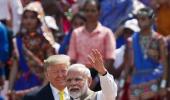
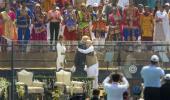
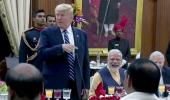
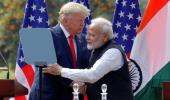
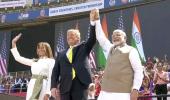






 © 2025
© 2025